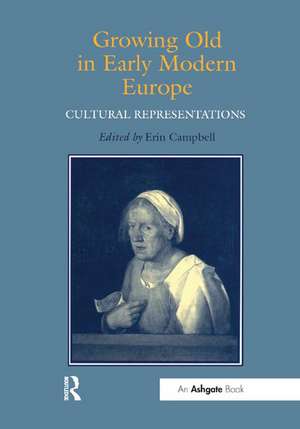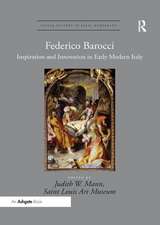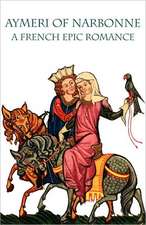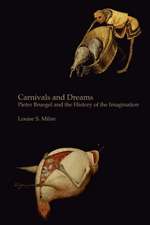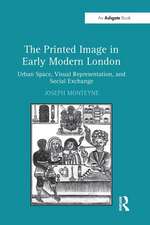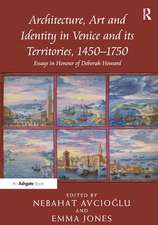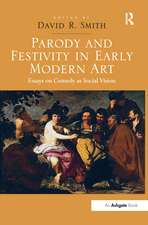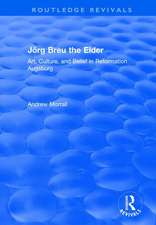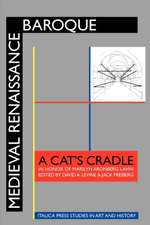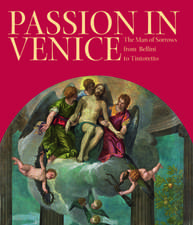Growing Old in Early Modern Europe: Cultural Representations
Editat de Erin J. Campbellen Limba Engleză Paperback – 25 sep 2017
| Toate formatele și edițiile | Preț | Express |
|---|---|---|
| Paperback (1) | 300.11 lei 6-8 săpt. | |
| Taylor & Francis – 25 sep 2017 | 300.11 lei 6-8 săpt. | |
| Hardback (1) | 820.41 lei 6-8 săpt. | |
| Taylor & Francis – 19 mai 2006 | 820.41 lei 6-8 săpt. |
Preț: 300.11 lei
Preț vechi: 356.94 lei
-16% Nou
Puncte Express: 450
Preț estimativ în valută:
57.43€ • 60.39$ • 47.45£
57.43€ • 60.39$ • 47.45£
Carte tipărită la comandă
Livrare economică 16-30 aprilie
Preluare comenzi: 021 569.72.76
Specificații
ISBN-13: 9781138273511
ISBN-10: 1138273511
Pagini: 258
Dimensiuni: 153 x 219 mm
Greutate: 0.48 kg
Ediția:1
Editura: Taylor & Francis
Colecția Routledge
Locul publicării:Oxford, United Kingdom
ISBN-10: 1138273511
Pagini: 258
Dimensiuni: 153 x 219 mm
Greutate: 0.48 kg
Ediția:1
Editura: Taylor & Francis
Colecția Routledge
Locul publicării:Oxford, United Kingdom
Cuprins
Contents: Introduction. Part I Appropriating the Ancients and Representing the Aged: Medical representations of old age and the influence of non-medical texts, Daniel Schäfer; Time's whirligig: images of old age in Coriolanus, Francis Bacon, and Thomas Newton, Nina Taunton; Youth, old age, and male self-fashioning: the appropriation of the anacreontic figure of the old man by Jonson and his 'sons', Stella Achilleos. Part II Aging at Court: The problem of old age in The Book of the Courtier, Maria Teresa Ricci; Aging the Lover: The lyrics of George Gascoigne's Posies, Kevin P. Laam. Part III The Aging Self: 'Should I as yet call you old?' Testing the boundaries of female old age in early modern England, Aki C.L. Beam; Thematic reflections on old age in Titian's late works, Zbynek Smetana. Part IV Power, Fragility, and Anxiety: Visible signs of aging: images of old women in Renaissance Venice, Mary E. Frank; 'Unenduring' beauty: gender and old age in early modern art and aesthetics, Erin J. Campbell; Cosimo's black widow, Allison Levy; Sans wife: sexual anxiety and the old man in Shakespeare's plays, Philip D. Collington. Selected bibliography; Index.
Notă biografică
Erin Campbell is Assistant Professor at the Department of History in Art, University of Victoria, Canada.
Descriere
The goal of the twelve essays, which are by scholars in the fields of history, literature, art history, and medicine, is to enrich our understanding of cultural discourses on ageing in early modern Europe. The contributors to this collection show that our understanding not only of ageing, but also of power, subjectivity, gender, sexuality, and the body is enriched by the study of cultural representations of old age. Through sensitive and sophisticated readings of a wide range of sources, these papers collectively demonstrate the formative force of images of old age within early modern European culture.
